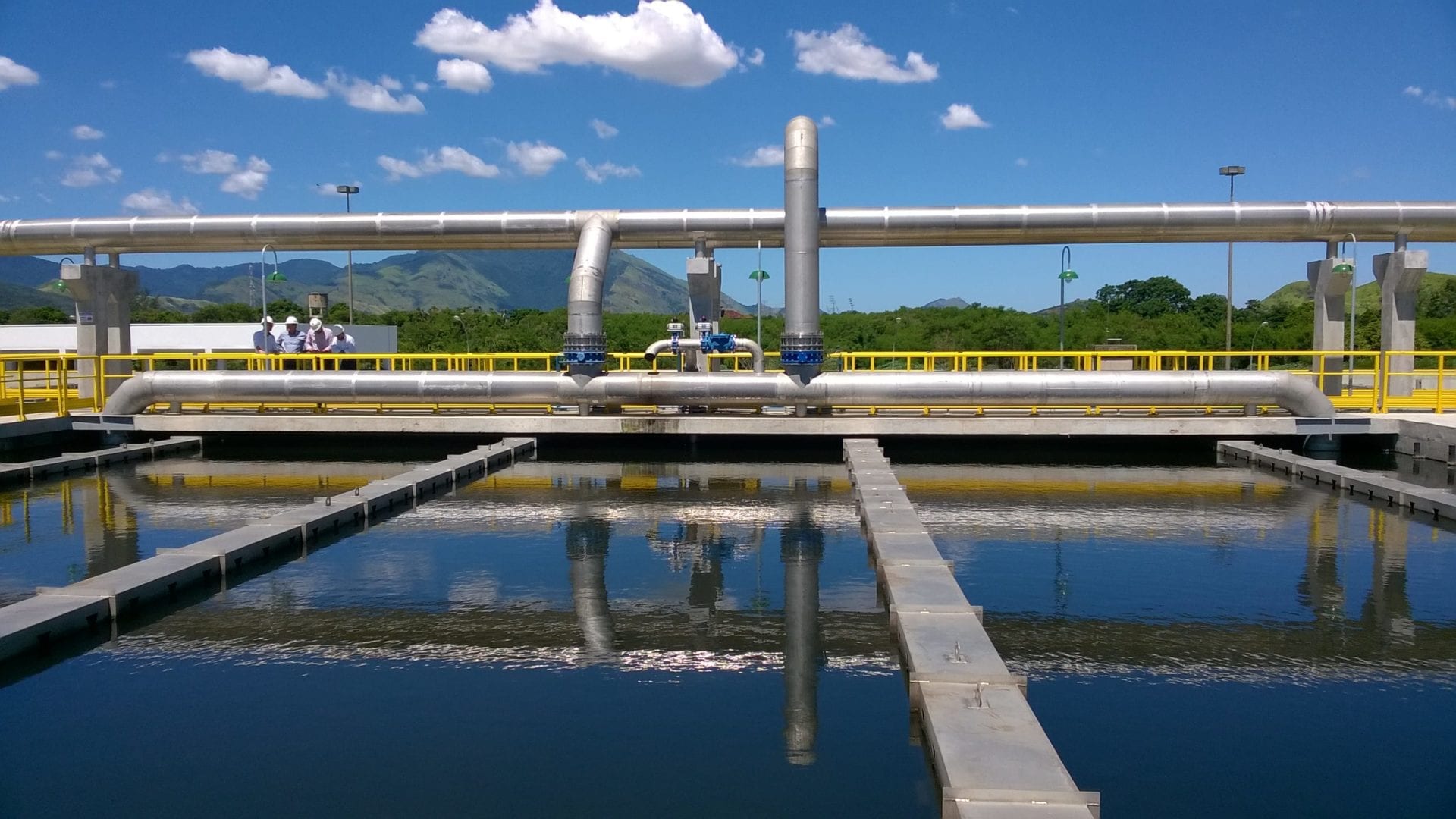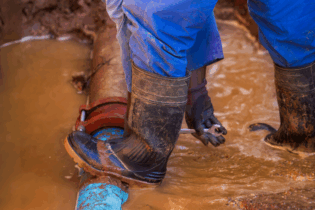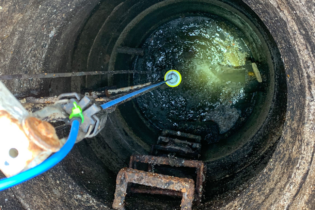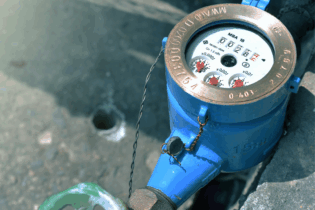 Water and Sanitation Minister Nomvula Mokonyane has emphasised the role new technologies will play in water and sanitation solutions. Graham Hartlett, commercial director at WEC Projects, explains how Nereda®, a proprietary technology from the Netherlands, is being rolled out for the first time in Gauteng.
Water and Sanitation Minister Nomvula Mokonyane has emphasised the role new technologies will play in water and sanitation solutions. Graham Hartlett, commercial director at WEC Projects, explains how Nereda®, a proprietary technology from the Netherlands, is being rolled out for the first time in Gauteng.
Also, Nereda is an innovative, one-
tank design, meaning you don’t need final clarifiers. Last time we spoke, WEC Projects had ambitions to take on more projects outside of South Africa. How have you successfully implemented this strategy to date? We have always been very active all around the African continent and, today, that is even more of a focus for us. We are currently busy with projects in various African countries including Zambia, Swaziland and Guinea.
In terms of Nereda, I feel that it is as much a certainty in South Africa as it is all around the world. The global uptake of the technology is rapid and the quality of the licensees around the world is beyond question. We have become a member of a global community in which we can share ideas and experiences and, in so doing, continue to add value to our clients with an optimised solution. The value of Nereda is in this community as much as it is in the technology itself.
How are technologies like Nereda aligned with national government’s goals towards greater water security? GH: Minister of Water and Sanitation Nomvula Mokonyane, in her revised strategic plan, has been clear about the role new technologies must play in the provision of water and sanitation solutions, saying: “The challenges of the water and sanitation sector cannot be addressed by utilising existing technologies alone. As signatories to the UN’s sustainability development goals and the commitments of COP21, compounded by the harsh realities of water scarcity and drought, the need to rapidly attain water security. Access to water and sanitation services for all in the country is highly reliant on the adoption of new technologies and innovation. Research into, and adoption of, new technologies in the areas of sanitation, water-quality monitoring, infrastructure development, maintenance and operations is thus critical to the sector.” We must all find a more innovative approach to solving the problems we have in the water sector. The technology is available – it just needs to be applied. WEC has established its reputation based on expertise in a number of cutting-edge technologies. As a leader in biogas-to-energy and wastewater solutions, what do you foresee being ‘hot button’ issues in the future, particularly in light of the World Water Day theme of wastewater? I don’t believe the fundamentals have changed with regard to biogas-to-energy in South Africa. We are still faced with ever-increasing energy costs and the compounded requirement to add capacity to our sanitation infrastructure. Often, it’s the lack of power supply that impedes an extension to a sewage treatment facility. Biogas on a sewage treatment plant is an unexploited fuel source; the business case for the municipal client is solid and as a result of this opportunity fuel we can collectively reduce the load we place on a strained Eskom and create enormous savings for utilities that will consequentially purchase less from Eskom. What is Nereda? GH: The name Nereda comes from the nereids of Greek mythology. Nereids are typically pure and flawless water nymphs, reflecting the quality of the water produced by the technology. Nereda is an innovative and advanced biological wastewater treatment technology that purifies wastewater using aerobic granules. With superb settling properties, these biomass granules have vastly superior settling characteristics when compared to regular floc. As a result, Nereda treatment results in high-quality effluent. Used for both new projects and extensions, Nereda is the future of wastewater treatmenmt technology. It was developed at Delft University of Technology in the Netherlands in conjunction with Royal HaskoningDHV and Dutch water boards. WEC Projects is the exclusive licensee for Nereda in South Africa. Benefits of Nereda- 1 tank solution (therefore no need for clarifiers)
- Green field, retrofit and hybrid applications
- Significantly lower CAPEX and OPEX
- Up to 75% saving in footprint
- Up to 50% saving in energy consumption
- Superb settling characteristics
- Simultaneous biological nitrogen and phosphorus removal
- Easy to operate
- Pure biomass with no support media required







